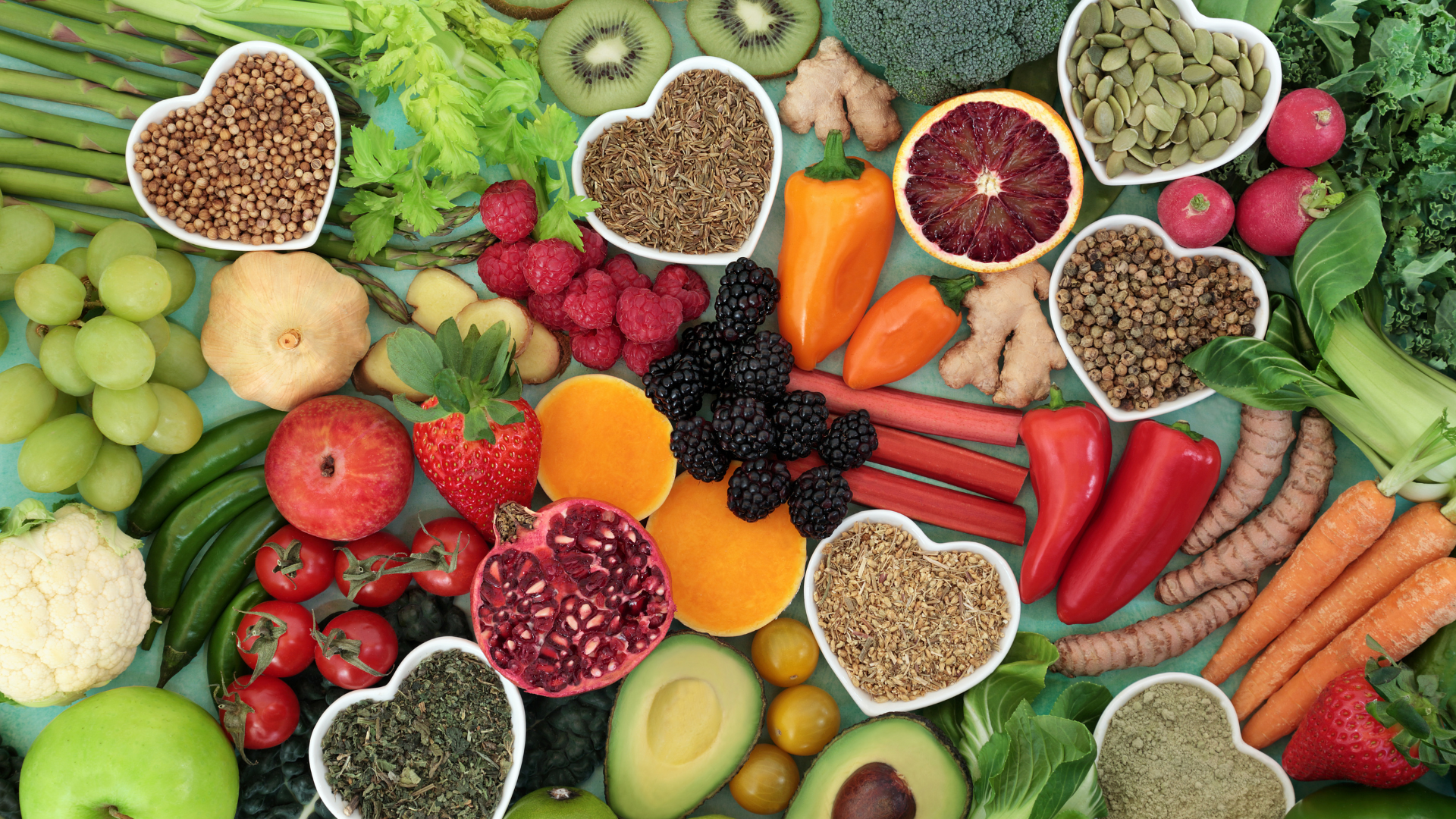Visit a Jo Anne’s Place location today to speak with our knowledgeable staff about your nutrition and supplement needs!
All products mentioned are available in-store.
It can be difficult to stay on top of your wellness and health in the business of everyday life. Striving for overall wellness means embracing a balanced lifestyle that nurtures our mind, body, and soul. And while starting a wellness journey may be daunting, every small step you take has a positive impact on your health.
In honour of National Wellness Month, here are some practical tried-and-true practices to boost your overall wellness based on 47 years of experience!

Nutrition is a critical part of your overall health. Not only does it provide your body with essential vitamins and nutrients, but it can also act as a preventative tool against disease and improve longevity. Try implementing some of the following nutrition tips into your routine:
– Drink 7-10 glasses of filtered or spring water daily. Chlorine destroys beneficial gut flora and can interfere with iodine absorption.
– Consume a diet that is 75-80% alkaline forming. An alkaline diet can support health by limiting processed foods and promoting whole foods.
– Go organic. Eliminate pesticides and other chemicals from your home. See the Environment Working Group’s Dirty Dozen.
– Focus on antioxidants. See Dr Josh Axe’s Top 10 Antioxidants.
– Enjoy fermented foods regularly. We’re big fans of Living Alchemy‘s fermented products which are available at Jo Anne’s Place.
– Use unrefined oils such as olive oil, coconut and MCT oils, sesame oil, and avocado oil.
– Consume 1-3 tablespoons of flax, hemp, or chia seeds daily.
Poor overall health can often be attributed to vitamin and mineral deficiencies. The following are the most common deficiencies and recommended doses to rectify them:
– Bio-Strath is a great general supplement, made with herbal yeast which provides numerous vitamins, minerals, amino acids, and more to the body. Take 2X daily at different meals.
– Vitamin C. Take 100-1,000 mg daily when local fruits and vegetables are not available.
– Vitamin D. Take 1,000-4,000 IU daily. We recommend testing your vitamin D levels every couple of years.
– Omega 3 fatty acids – Consume daily unless fish, hemp, or flax are consumed regularly.
– Magnesium – 100-500 mg daily
– Probiotic – intermittent use along with fermented foods.
After 35, certain vitamins and minerals in men and women begin to decrease. It is important to maintain these at an optimal level to ensure your body is properly nourished.
– As you age, you can start to lose more Calcium than you absorb causing your bones to break more easily. We recommend a Calcium/Magnesium formula at 100-300 mg daily.
– Vitamin K2 promotes the calcification of bones and prevents the calcification of kidneys and blood vessels. Try 100-125 mcg every second day.
Healthy living is not a denial of the things you enjoy that do not provide health benefits. It simply assigns them an appropriate place and frequency in your lifestyle. One day each week take a break from your regimen and enjoy some guilt-free fun foods!
*Please note that this information is not intended to replace the advice of health professionals. Please check with your practitioner and/or pharmacist if you take prescription medications.

Visit a Jo Anne’s Place location today to speak with our knowledgeable staff about your nutrition and supplement needs!
All products mentioned are available in-store.



All Rights Reserved | Jo Anne's Place Health Foods
SITE DESIGN BY PTBOCANADA DIGITAL MARKETING AGENCY